Waste Management in the Netherlands
8 November 2023, By PLAEX Technologies
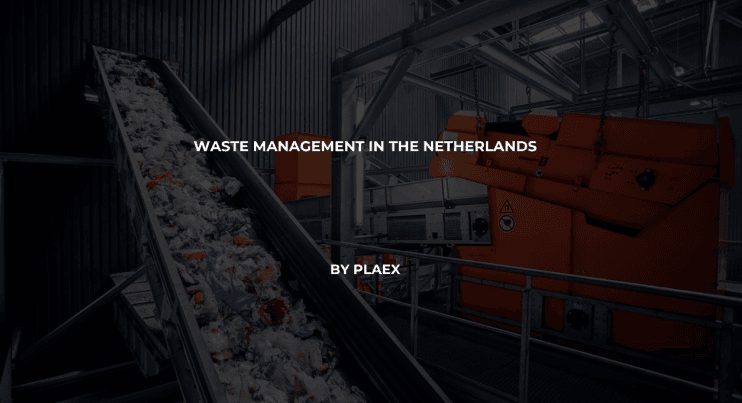
Waste management is a critical aspect of maintaining ecological balance and sustainability. The Netherlands stands as a paradigm for efficient waste management practices.
With a population known for its eco-consciousness, the country has developed innovative systems to handle waste while prioritizing environmental conservation and resource optimization.
From waste reduction and recycling to energy recovery and advanced sorting techniques, the Netherlands has adopted a holistic approach that benefits both the environment and its citizens.
This article will provide an overview of how recycling and waste management function in the Netherlands. It will also explain how individuals can separate and dispose of their waste in the most environmentally friendly manner.
Is the Netherlands Good at Recycling?
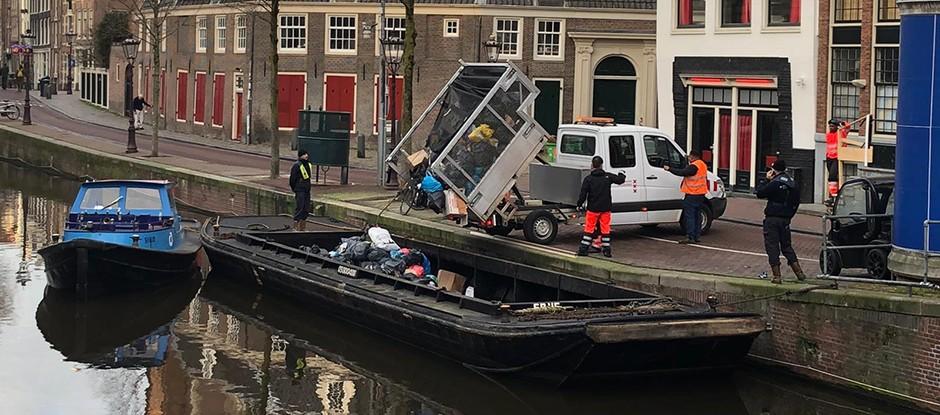
Recycling and waste management in the Netherlands are subject to more rules and regulations compared to other countries. The country's reputation as an environmentally conscious nation is due, in part, to these laws and the Dutch mindset of caring for the environment. Its expansive fields and farmland also contribute to its "green" image.
The packaging industry asserts that the Netherlands is considered one of the leading countries in Europe when it comes to recycling rates. According to the European Environment Agency (EEA), in 2019, the Netherlands ranked fourth in the European Union for recycling municipal waste, with 54% of it being recycled.
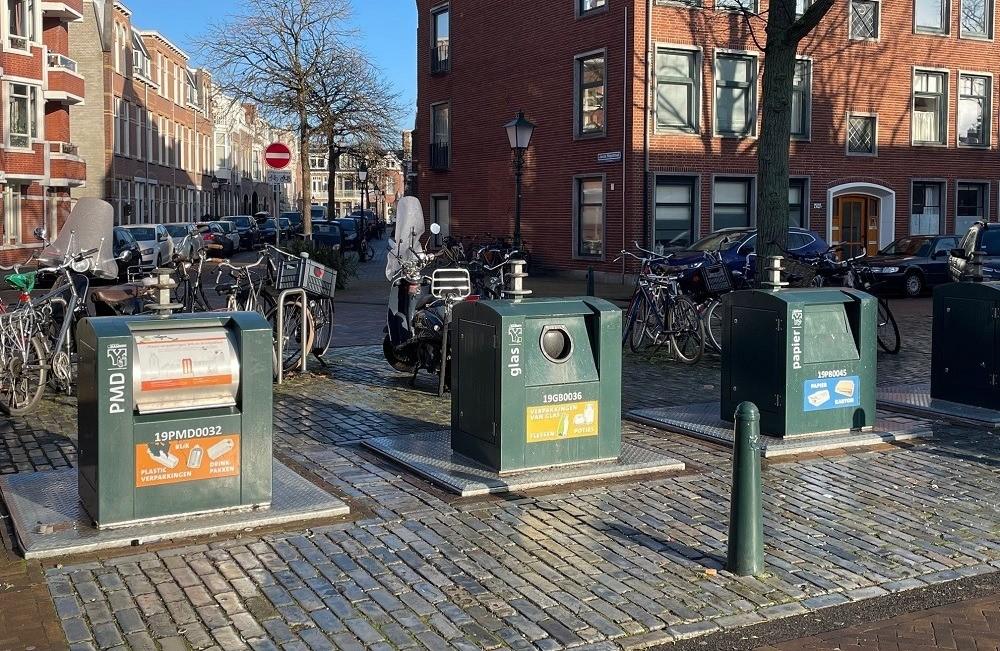
The Netherlands has made significant progress in achieving higher recycling rates over the years. The Dutch government has implemented effective waste management policies and invested in infrastructure to support a circular economy. These efforts have played a crucial role in the country's success in waste reduction and recycling.
One of the key factors contributing to the Netherlands' high recycling rates is its well-developed waste collection and sorting systems. The country has an extensive network of recycling facilities and recycling centers, making it convenient for citizens to separate and dispose of different types of waste properly. The implementation of advanced sorting technologies and automated systems improved the efficiency and accuracy of the recycling process.
Our team of experts in waste collection and management can provide you with innovative strategies tailored to your specific needs. Book a meeting with us today to explore how PLAEX Technologies can assist you in achieving efficient and sustainable waste disposal practices.
How Does the Netherlands Manage Waste?
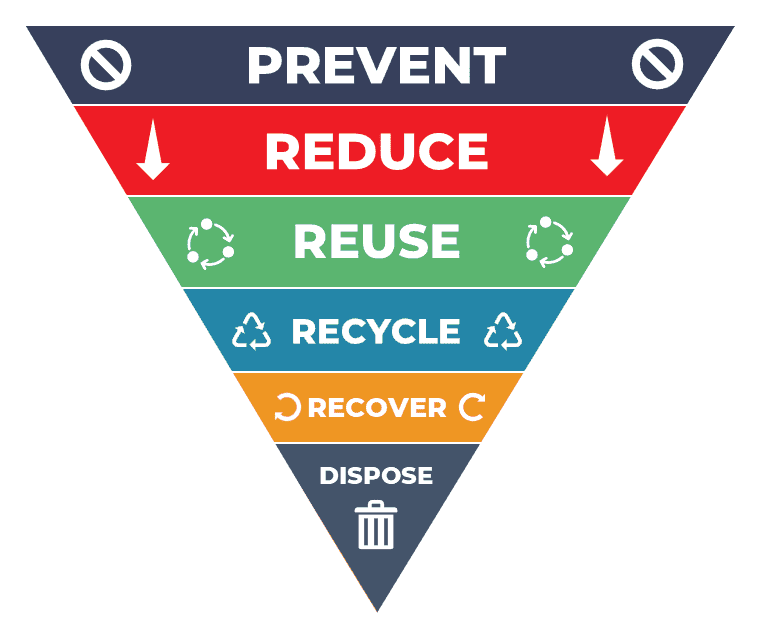
The Dutch approach to waste management focuses on minimizing waste, recovering valuable materials, and using incineration to generate energy. Landfilling is only considered when other options are not feasible.
This approach, known as 'the order of preference', prioritizes reducing, reusing, and recycling waste.
To minimize the environmental impact of waste management, strict regulations were implemented. These regulations cover various aspects, such as:
- Protecting the soil from landfilling
- Maintaining quality standards for secondary materials derived from waste (such as building materials)
- Ensuring air quality standards for incineration, setting quality standards for organic fertilizers derived from bio-waste
Additionally, the Netherlands has implemented a system of waste sorting and collection, which includes separate bins for organic waste, paper, plastics, and other materials. This makes it easier for waste to be recycled and reduces the amount of waste that ends up in landfills.
In 2020, the Netherlands achieved a recycling rate of 56.8%. There is still much work to be done in order to meet the target of 60% by 2030. The country is also known for its research and innovation in waste management. It continuously seeks new and advanced solutions to tackle waste-related challenges and promote sustainability.
Looking for effective waste management solutions? Let's work together towards a cleaner and greener future. Contact us today to schedule a meeting.
What is the Waste Prevention Program in the Netherlands?
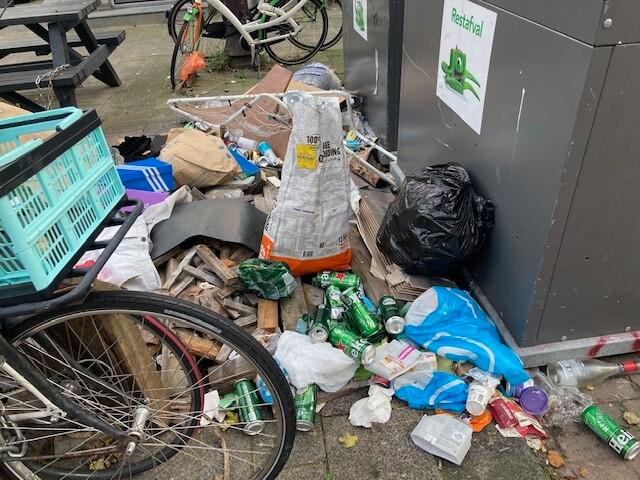
The Netherlands has demonstrated its commitment to the sustainable management of waste through the implementation of the National Circular Economy Program. This program, introduced by State Secretary Heijnen, aims to transition the country to a circular economy by the year 2030.
This was announced on February 16, 2023. The program outlines a comprehensive set of initiatives and strategies to promote sustainability and reduce waste generation.
Key goals of the National Circular Economy Program include:
- It emphasizes the importance of closing the material loop by promoting the reuse, recycling, and recovery of resources. This approach aims to minimize the extraction of new raw materials and reduce waste generation.
- It recognizes the need for collaboration between various stakeholders, including businesses, government agencies, and research institutions.
- It highlights the significance of circular procurement practices.
- It encourages sustainable design principles that prioritize the durability, reparability, and recyclability of products.
- It emphasizes the importance of public awareness and engagement in achieving a circular economy. It also promotes educational initiatives and awareness campaigns to inform and involve citizens in sustainable practices.
The Netherlands aims to become a global leader in the circular economy and set an example for other nations by implementing the National Circular Economy Program. The program's holistic approach addresses various aspects of waste management and promotes sustainable practices throughout the entire value chain.
The country has also taken significant steps to address the issue of plastic pollution by implementing a ban on certain single-use plastic products. As of July 3, 2021, the ban prohibits the placement of specific items on the market. Some of these items include cotton swabs, cutlery, plates, straws, stirrers for beverages, and sticks used to support balloons.
In addition to the ban on plastic products, the Netherlands has also prohibited the marketing of products made from oxo-degradable plastics. This ban aims to reduce the presence of plastics in the environment.
Producers or importers of plastic products such as food containers, bags and wrappers, packages for drinks (up to three liters), drinking cups, light plastic carrier bags, wet wipes, balloons for consumers, and tobacco products with filters are required to compensate the costs for cleaning up, transporting, and processing litter. They are also responsible for raising awareness of the environmental impact of these products.
Final Thoughts:
The Netherlands has established itself as a leader in recycling and waste management. With a strong focus on sustainability and environmental conservation, the country has implemented comprehensive policies and infrastructure to support a circular economy.
The Netherlands' commitment to waste reduction and recycling is reflected in its impressive recycling rates, however more work needs to be done in order to meet the European Union targets. The government's proactive approach, coupled with the eco-conscious mindset of the population, has helped to create a culture of responsible waste management.
Through advanced sorting techniques and a strong emphasis on resource efficiency, the Netherlands has set an example for other nations to follow. The Dutch waste management model showcases the importance of collaboration, education, and investment in infrastructure to achieve sustainable waste management practices.
Our team is here to help you navigate waste management challenges and explore innovative strategies tailored to your needs. Book a meeting with us today to discover how PLAEX Technologies can assist you in achieving efficient and sustainable waste management practices.
FAQ (Frequently Asked Questions)
How can I recycle easier and more efficiently?
Garby offers an innovative solution to help individuals and businesses recycle more easily and efficiently. The smart waste bin automatically sorts waste into four different categories, eliminating the need for manual sorting and reducing the chance of cross-contamination.
Can two objects be thrown inside Garby at once?
Yes! However 2 different waste types at once is a cross-contamination event, and it will all go to residual waste.
How do I know when the smart bin is full?
The fill levels are indicated on the front lights, and you can see this on the online dashboard.
Can I know how much kg of waste is produced?
Yes! This is all shown on the dashboard as Garby has an integrated weighing scale.
What do the different lights mean?
Blue indicates paper waste, green indicates organic waste, yellow indicates PMD waste and brown indicates residual waste.